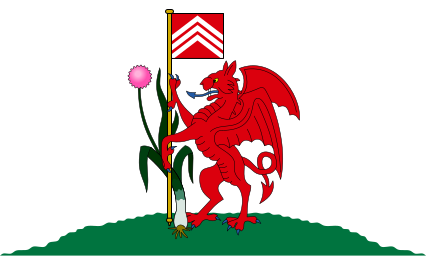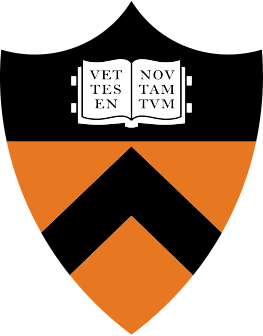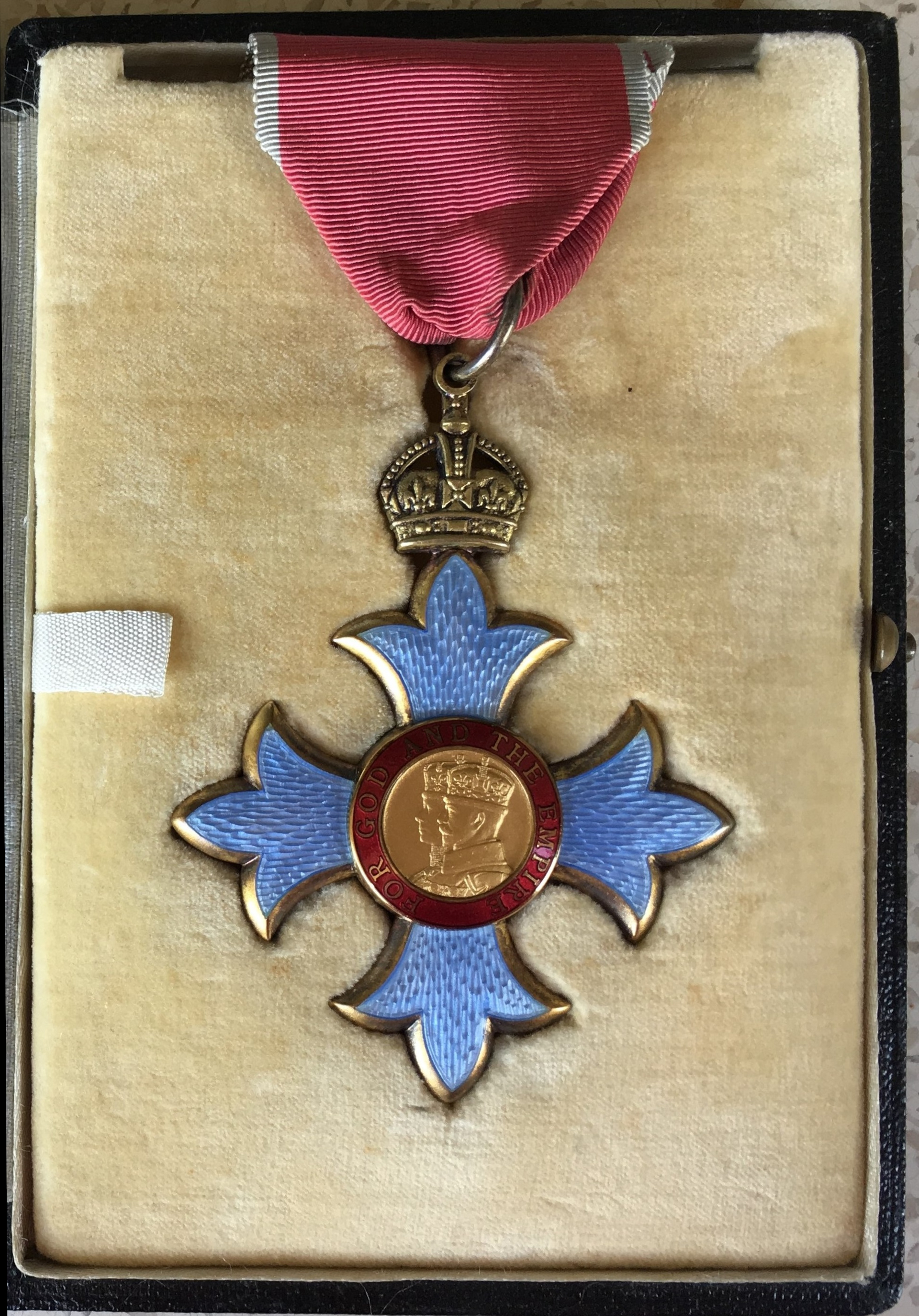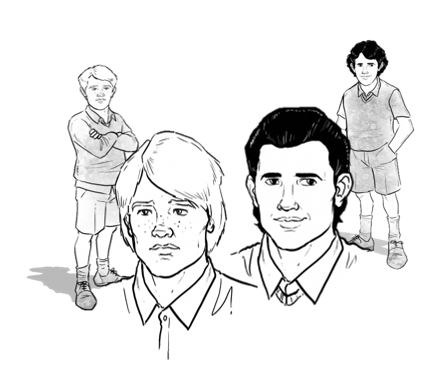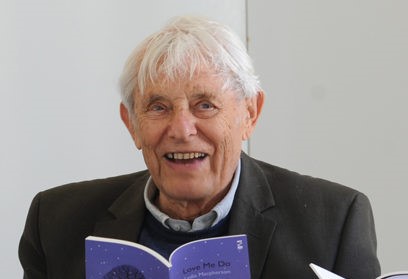
Abse, Dannie
Historical Background
During the time the autobiographical novel Ash on a Young Man’s Sleeve was written, the Second World War raged in Europe (1938–1945) and civil war was ripping Spain apart during the years 1936–1949. Between 1940 and 1944, approximately 2,100 bombs fell on Cardiff, killing 355 people. (BBC News.)
Author Biography
Dannie Abse trained and worked as a doctor of medicine; however, an article in the British Medical Journal of December 2014 stated that he was never quite a true believer in medicine. This reflects his various other lives as a poet, Jew, Christian, atheist and playwright. He had a successful 30-year career as a chest physician, but there was always a ‘whiff of subversion’; for example, he smoked and was ‘intoxicated’ by the ‘polyphony of words’.
His first collection of poems, After Every Green Thing, was published in 1948 while he was a medical student at Westminster Hospital; in all, he wrote more than 30 books, comprising many genres – memoirs, fiction, plays and criticism – but perhaps most significantly – poetry. His poetry included everything from painting, music, and the fortunes of Cardiff City Football Club, to the big challenges of life, for example, love, sex, death, ageing, memory. Abse argued that poetry should not be ‘an escape from reality but rather an immersion into reality’. For him, if medicine was a career, poetry was ‘a vocation, even a destiny’. We can see the link between medicine and poetry when he highlights the colours of disease: ‘the rose of a tumour’, ‘the green of a festering limb’, a dying man’s mouth ‘sucking the flesh off a peach stone’.
In ‘Portrait of an Old Doctor’, one of his last poems in the collection Speak, Old Parrot, poetry and medicine are effectively combined. Abse wrote:
He had been a confidence man for the patient.
That’s how it was in the Theatre of Disease
and, at the final act, he had lifted
his stethoscope to listen
as if to Mozart.
Then, silently, relatives and friends filed out.
No applause. None for Hippocrates’ art.
Towards the end of the Second World War Abse joined a group of medical students who volunteered to help when there was a shortage of doctors. When others were sent to help at a camp abandoned by the Germans, he was not selected for the group. He later discovered that this was Belsen. He wrote ‘Auschwitz has made me more of a Jew than Moses did’.
His autobiographical work Ash on a Young Man’s Sleeve was published in 1954. Abse took the title from a line in T. S. Eliot’s ‘Little Gidding’. The book has been widely praised for its humour, lyricism and honesty. It cleverly interweaves public and private themes, with its narration of the lives of a Jewish family in Wales, with all the tensions that brings, against the background of the era – unemployment, the rise of the two dictators Hitler and Mussolini, and the Spanish Civil War.
The focus of the book is the friendship between two young boys, Dannie and Keith. The family, together with brothers Leo and Wilfred is more or less the same as Dannie’s own family. The book ends with bombs dropping on Cardiff and the death of Keith. It is the end of summer and also, symbolically, the death of innocence. As one reviewer put it: ‘Ash On a Young Man’s Sleeve concludes with a lovely meditation on falling leaves, thus concluding, with a gentle music, a spare and affecting book, full of limpid prose, shaped by a doctor-in-the-making, who is here just beginning to hone and wield his writer’s finest scalpel, to lay bare life.’
Another critic wrote that Abse was a rare example of a person who made a commitment to the well-being of body and spirit simultaneously through both the arts and sciences. A quote from Ash on a Young Man’s Sleeve exemplifies this, as well as showing the humour underlying the narrative: when Dannie feels attracted by two kinds of work he ponders this in conversation with his friend Keith:
‘I’ve been thinking’ I said.
‘What?’ he asked.
‘I think I’ll become a doctor after all.’
‘Thought you were going to be a poet and an assassin,’ Keith reminded me.
‘No,’ I said. ‘One must choose the difficult path. It’s too easy to be a poet, or to knock off a few heads of Europe. Too easy. I’ll take the difficult path. Anyway, I believe in Democracy.’
‘What’ll you be tomorrow?’ smiled Keith.
‘Dunno,’ I said.
Danni Abse died in September 2014, six days after his 91st birthday.
Photo credit: Daisyheadmaisie – Dannie Abse
© ZigZag Education 2026: content may be used by students for educational use if this page is referenced.
| 1923 |
Birth |
||
| 1934 |
Cardiff City Football Club
|
||
| 1940–44 |
The Cardiff Blitz
|
||
| 1950s |
Medical training
|
||
| 1949 |
After Every Green Thing publication
|
||
| 1971 |
Welsh Arts Council Award
|
||
| 1973–74 |
Princeton University Fellow |
||
| 1983 |
Royal Society of Arts Fellow
|
||
| 1985 |
Welsh Arts Council Award (second win)
|
||
| 1985 |
Cholmondeley Award
|
||
| 2005 |
Death of wife
|
||
| 2006 |
Running Late publication
|
||
| 2007 |
The Presence publication
|
||
| 2008 |
The Presence Book of the Year Award
|
||
| 2009 |
Wilfred Owen Poetry Award
|
||
| 2010 |
Judge for the Hippocrates Prize
|
||
| 2012 |
|
||
| 2014 |
Death
|


